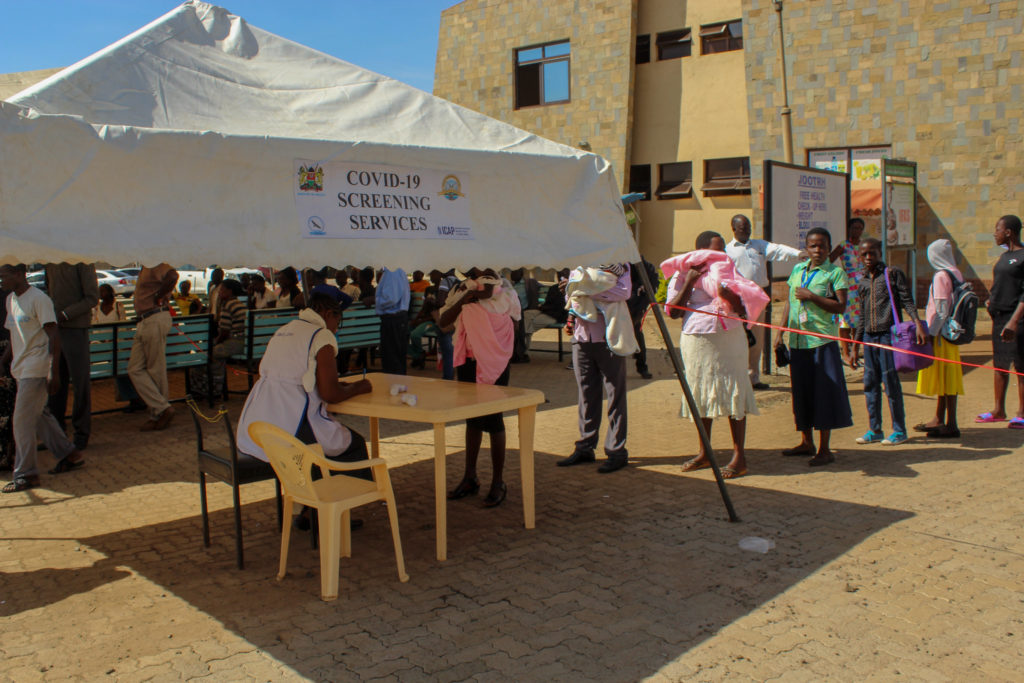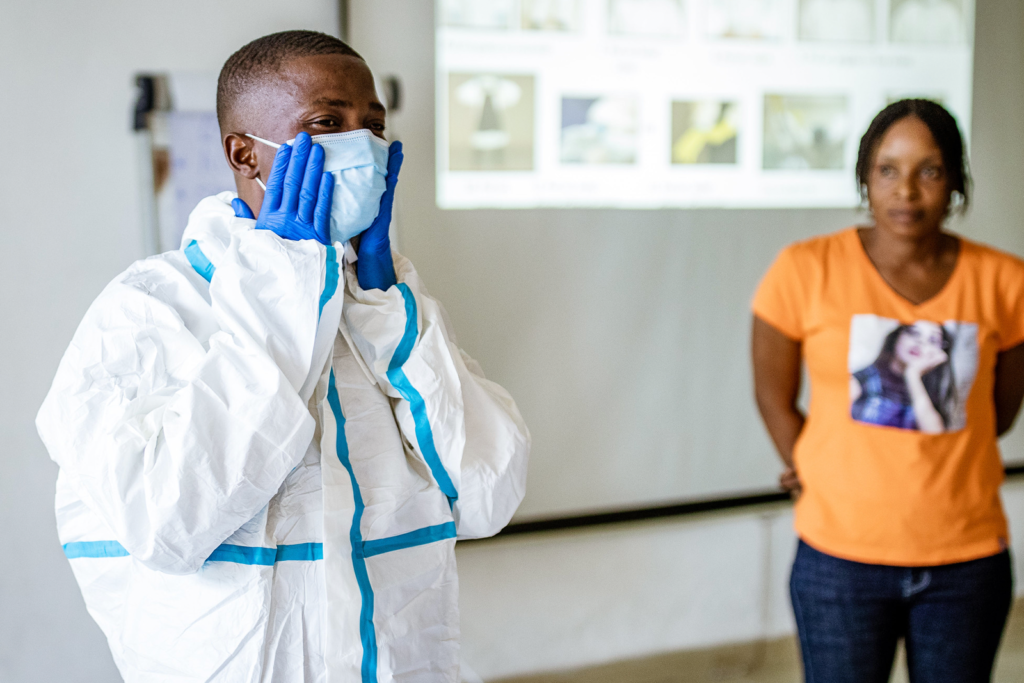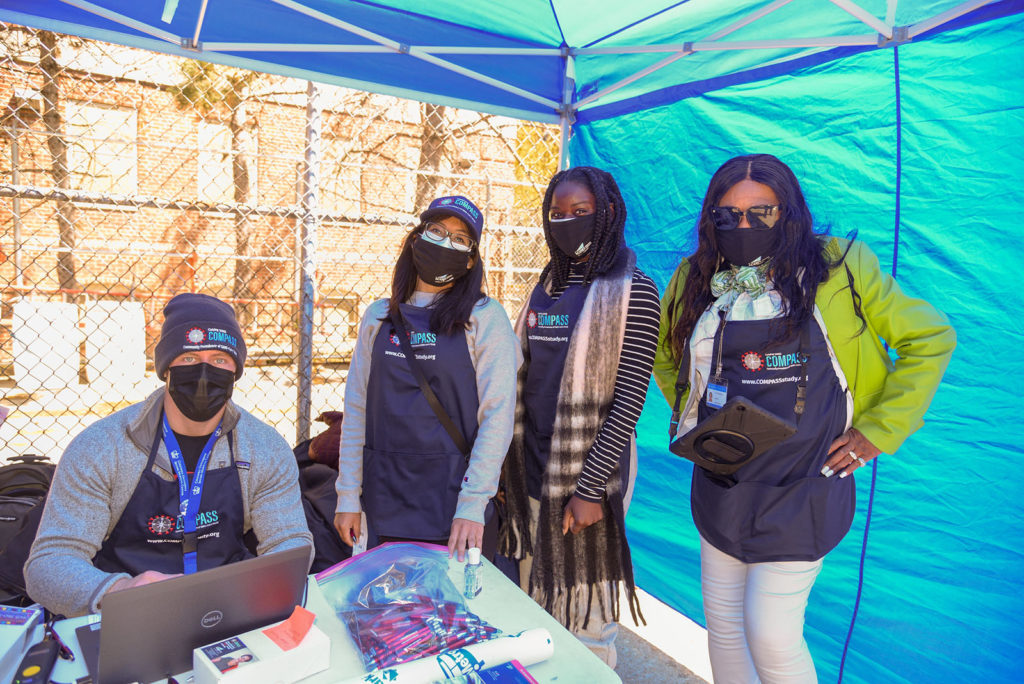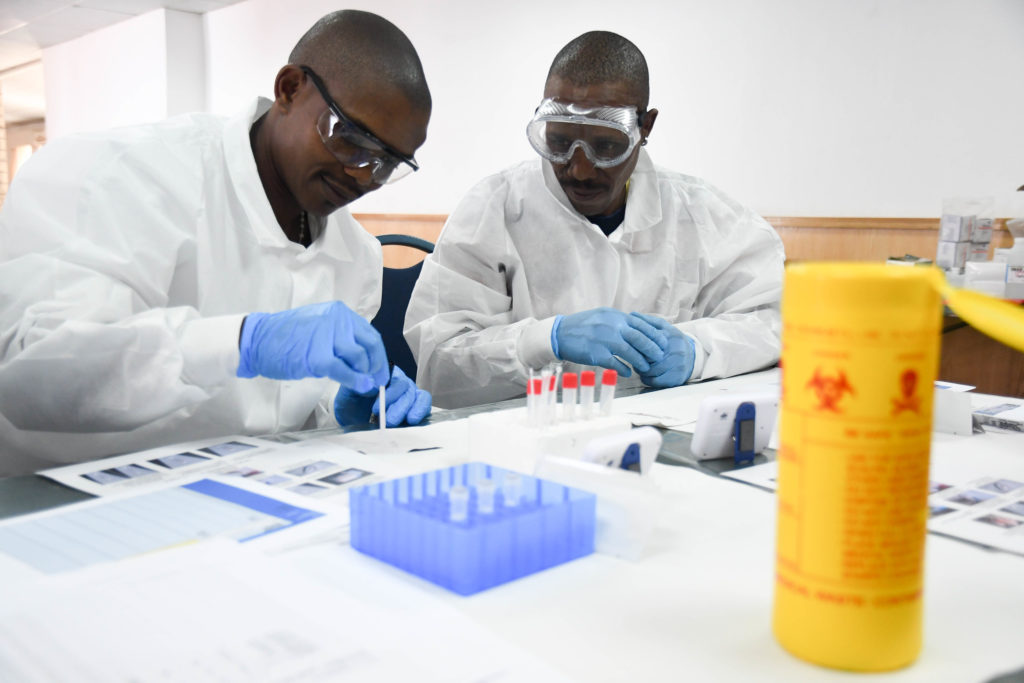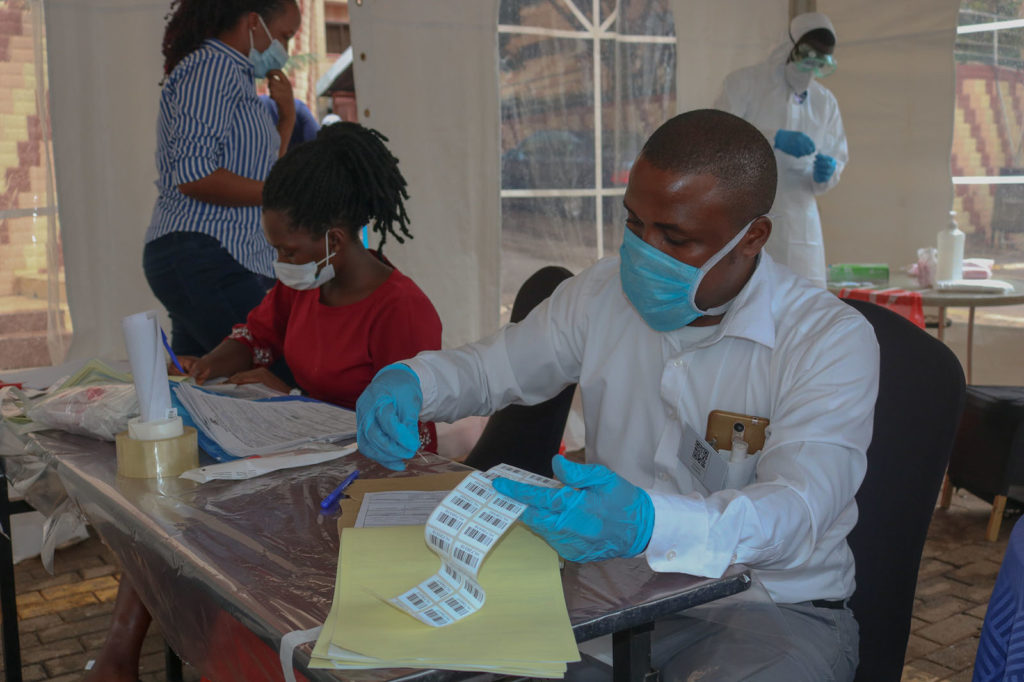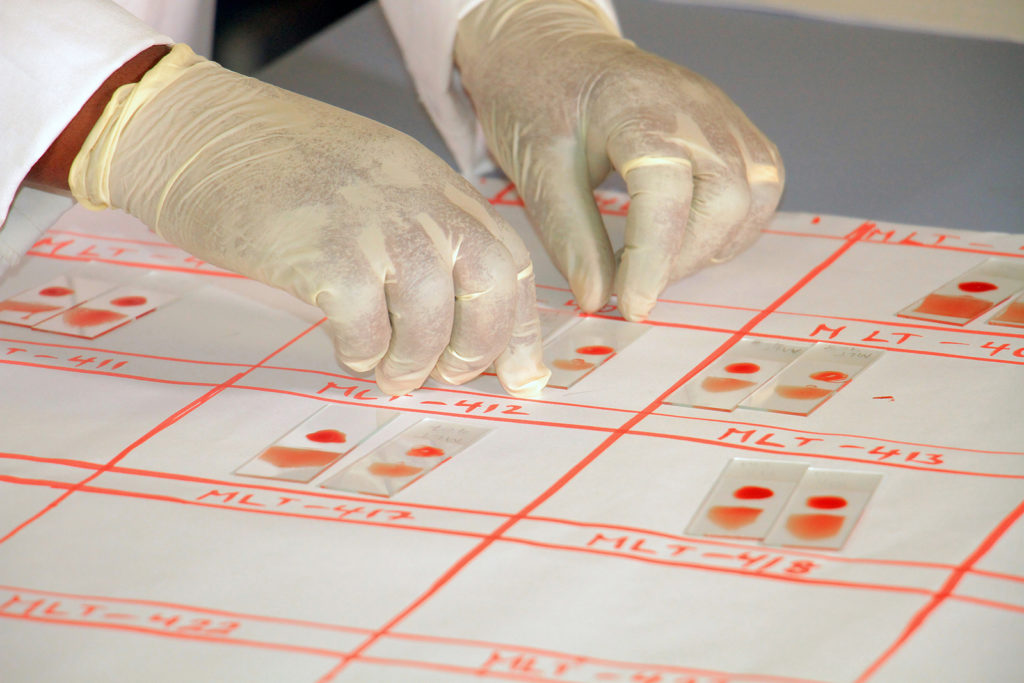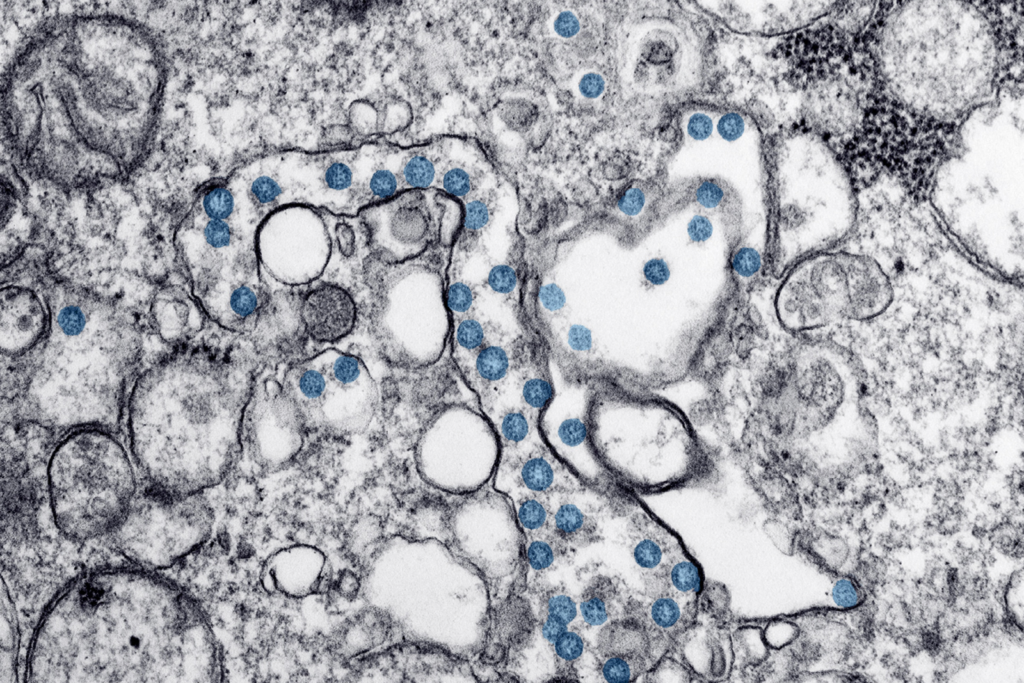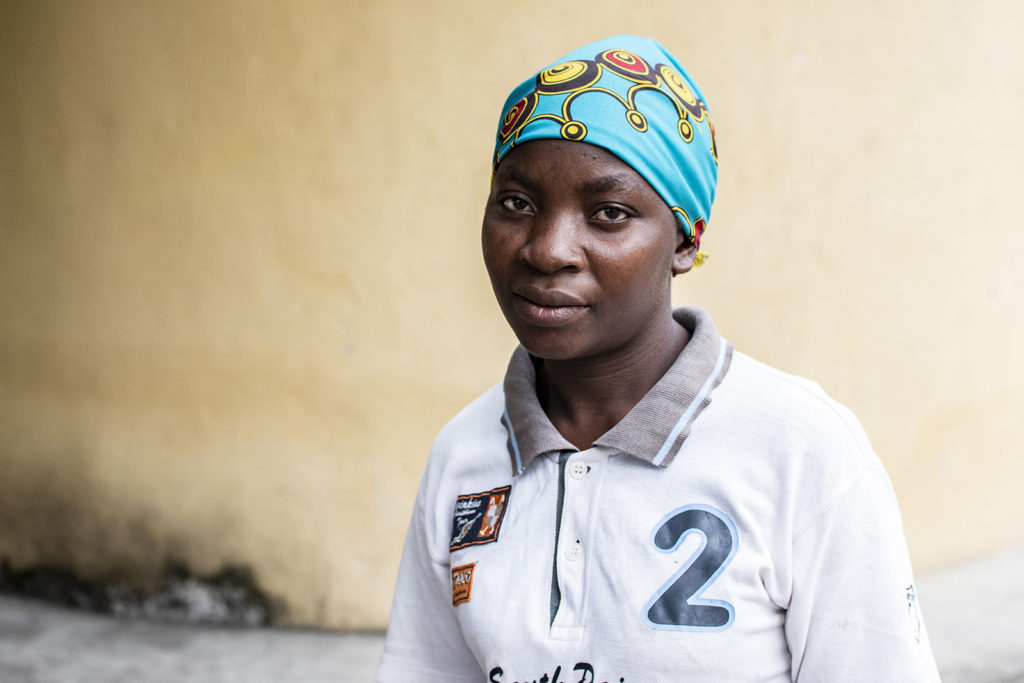Surveying the HIV Epidemic Undaunted
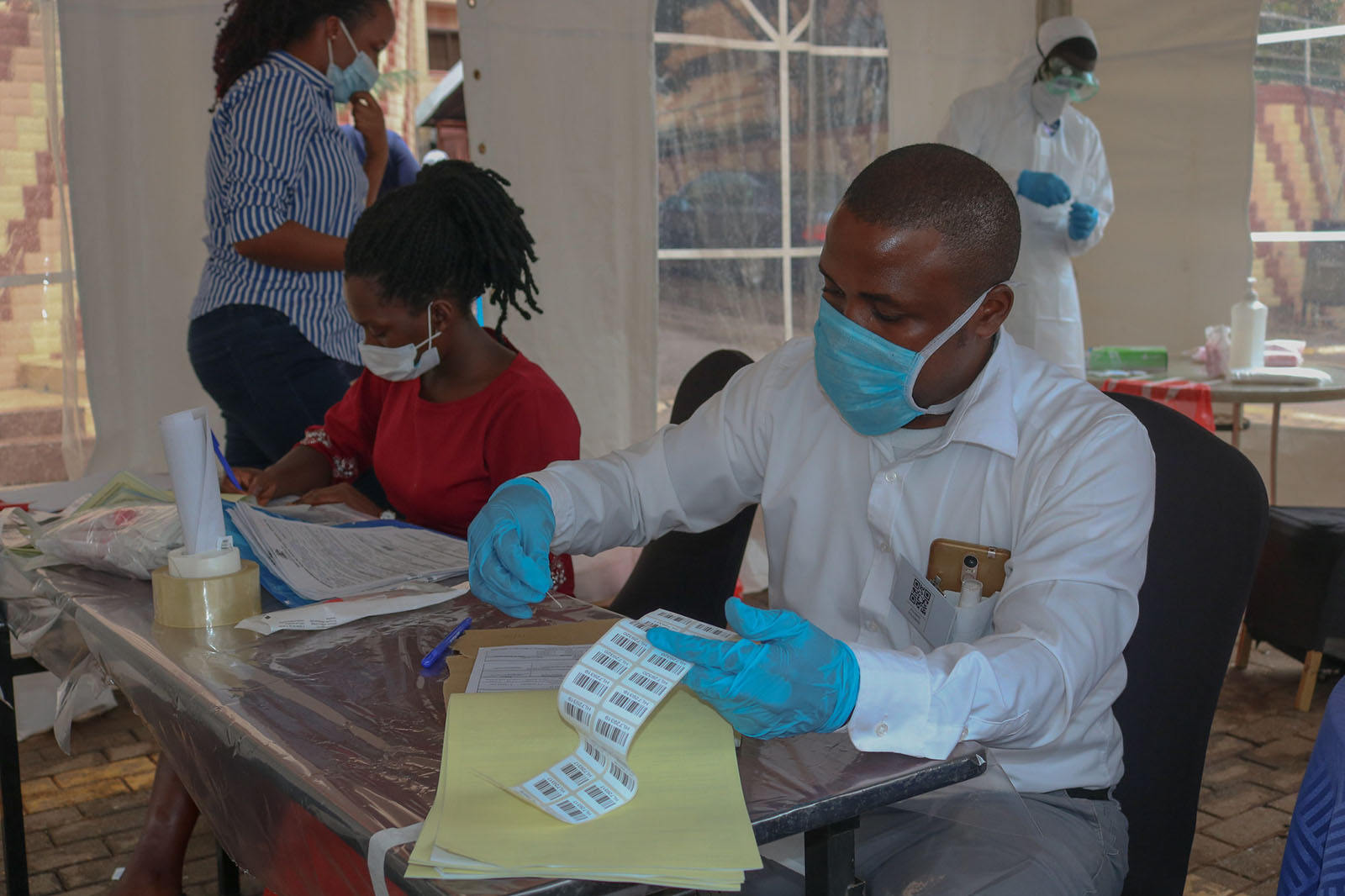
Since 2014, the Population-based HIV Impact Assessment (PHIA) Project has been guiding the global HIV response by conducting national representative surveys that chart the state of the HIV epidemic across 15 countries. The PHIA Project measures population-level understanding of HIV epidemic as well as access to preventive care and treatment services. To date, 16 national surveys have interviewed more than 173,000 households, resulting in a wealth of data being used around to improve progress toward the UNAIDS goals for HIV epidemic control.
“Now, more than ever, accurate data are needed to guide policies, programs, and funding decisions. ICAP is deeply committed to supporting general population and other types of surveys in order to serve as a blueprint for countries as they advance their response to HIV as well as new threats to their population’s health.”
Wafaa El-Sadr, MD, MPH, MPA,
global director of ICAP and
principal investigator, the PHIA Project
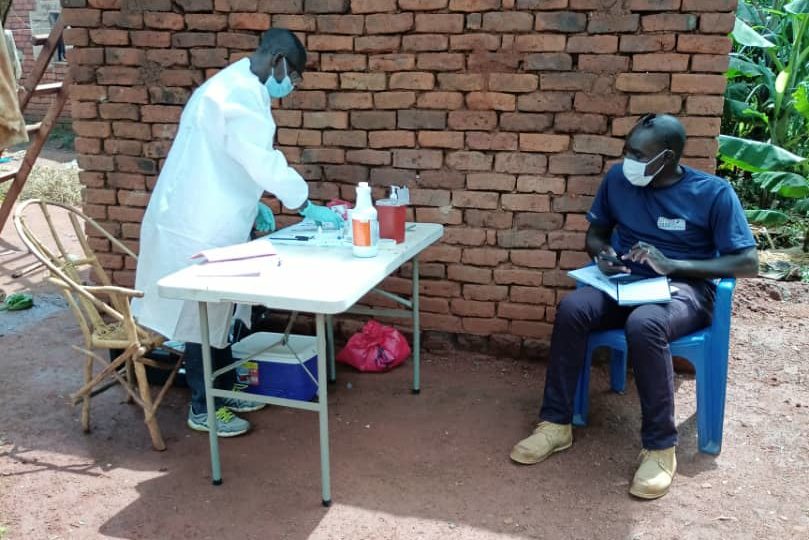 The onset of the COVID-19 pandemic required a pause in PHIA’s household-based HIV surveillance work. True to their determined nature, many of the teams in the PHIA countries retooled their efforts to be prepared to resume data collection at the first opportunity.
The onset of the COVID-19 pandemic required a pause in PHIA’s household-based HIV surveillance work. True to their determined nature, many of the teams in the PHIA countries retooled their efforts to be prepared to resume data collection at the first opportunity.
One such team was the one conducting the Uganda Population-based HIV Impact Assessment (UPHIA 2020), which had begun their household visits in February 2020 only to be forced to stop a month later as the country went into lockdown.
When the COVID-19 pandemic swept across the world, like many other nations, Uganda adopted a strict lockdown to prepare its health system for the potential spread of the virus. By the end of March 2020, most businesses were closed, vehicle movement was restricted, and an evening curfew was put in place.
After a seven-month hiatus, the UPHIA 2020 surveys resumed data collection in October 2020. The timing was less than ideal, as this marked the heart of the rainy season and the UPHIA teams soon learned that an unforeseen consequence of COVID-19 would be the treacherous terrain they would need to negotiate at this time of year.
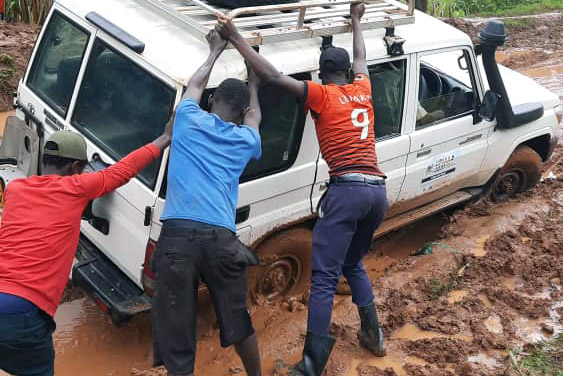 One team traveled to Eastern Uganda to reach a community at the top of Mount Elgon, an extinct shield volcano bordering Uganda and Kenya, an area notorious for its heavy rains and landslides. Located in a remote area with limited access to health services, the community members were eager to receive the UPHIA 2020 team, participate in the survey, and receive HIV testing and counseling. When the team was preparing to leave, the continuous rain had caused landslides that left the PHIA vehicles stuck in the mud. The team split up, with one group staying behind to extricate the vehicles from the mud while the other group trekked for six hours on foot to rendezvous with couriers that could transport the collected samples to the nearest satellite laboratory so they could be processed on time.
One team traveled to Eastern Uganda to reach a community at the top of Mount Elgon, an extinct shield volcano bordering Uganda and Kenya, an area notorious for its heavy rains and landslides. Located in a remote area with limited access to health services, the community members were eager to receive the UPHIA 2020 team, participate in the survey, and receive HIV testing and counseling. When the team was preparing to leave, the continuous rain had caused landslides that left the PHIA vehicles stuck in the mud. The team split up, with one group staying behind to extricate the vehicles from the mud while the other group trekked for six hours on foot to rendezvous with couriers that could transport the collected samples to the nearest satellite laboratory so they could be processed on time.
Elsewhere in the country teams have had to travel on water for hours to reach remote islands on Lake Victoria. Another team was interrupted by cattle raids. In urban areas, the struggle is to find participants at home when they come knocking to do a survey. And on top of it all, COVID-19 is always an obstacle, with team members needing to be routinely tested for COVID-19 and screened every morning for related symptoms before data collection.
This kind of determination is standard in all the countries where ICAP is supporting this groundbreaking effort. After all, the PHIA team members are committed to seeing an end to HIV in their nations, and they will let nothing stand in their way to bring back the data that will help them achieve that goal.
Funding: The U.S. President’s Emergency Plan for AIDS Relief (PEPFAR) through the S. Centers for Disease Control and Prevention (CDC)
Surveys by the Numbers section needs some edits. The photo does not line up with the text box, there is a gap:
INTREPID
RESOURCEFUL
DETERMINED
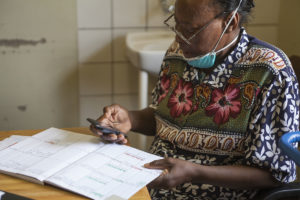
Tracking COVID-19 Through Innovative Surveys
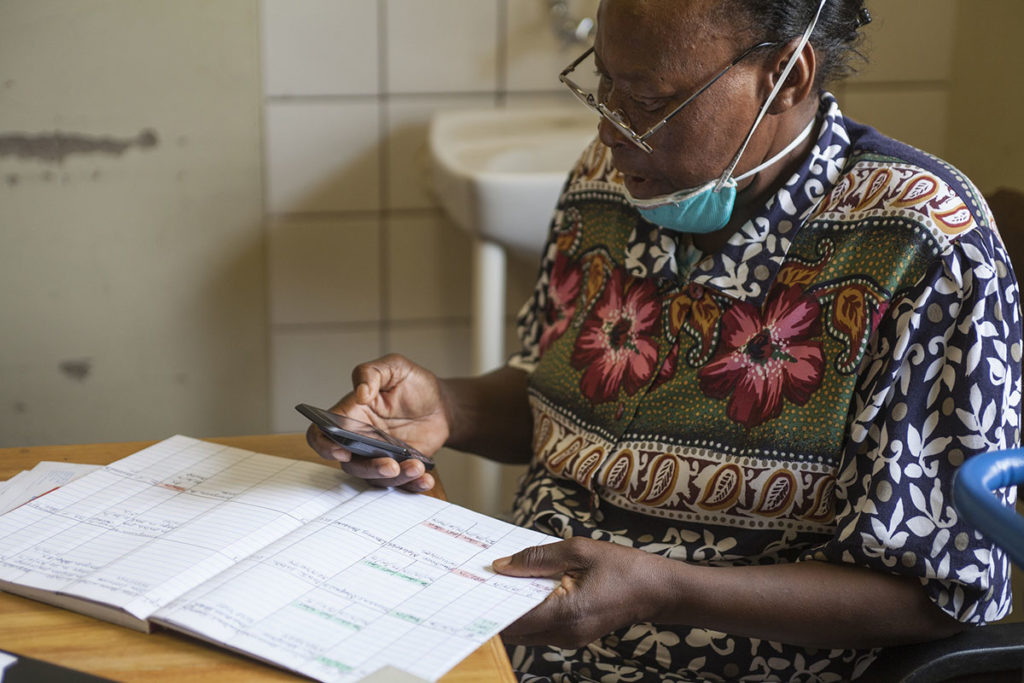 Surveys can play a vital role in tracking the COVID-19 situation, providing a real-time window into outbreaks to enable rapid response. Through the PHIA Project, ICAP has extensive experience with HIV surveillance. PHIA is currently operating in 15 sub-Saharan countries, including Lesotho, where the survey is known as LePHIA.
Surveys can play a vital role in tracking the COVID-19 situation, providing a real-time window into outbreaks to enable rapid response. Through the PHIA Project, ICAP has extensive experience with HIV surveillance. PHIA is currently operating in 15 sub-Saharan countries, including Lesotho, where the survey is known as LePHIA.
In 2020, as the COVID-19 pandemic spread, ICAP immediately leveraged its existing project partnerships in Lesotho to create an innovative surveillance project using cellphones to assess COVID-19 incidence across the country. The COVID-19 cellphone-based survey, known as ‘LeCellPHIA,’ involves calling 1,700 LePHIA participants weekly to ask about symptoms they or any household members may have. The data is fed into an electronic monitoring system that ICAP newly designed and that piggybacks on a suite of health informatics and data management solutions that ICAP had previously created.
“Instead of dedicating valuable resources to develop completely new data management systems and protocols to track COVID-19,” noted Tsigereda Gadisa, MD, MPH, chief of party for the strategic information strengthening project for ICAP in Lesotho, “we leveraged data management systems ICAP had already built for Lesotho’s HIV response and our internal expertise on data platforms and local contexts.”
LeCellPHIA is just one a number of innovative surveys ICAP has introduced to help build understanding of the toll of COVID-19. In addition to Lesotho, during 2020 and into 2021, ICAP supported COVID-19 surveillance in Cameroon, DRC, Eswatini, Malawi, and Zimbabwe – including virologic surveillance, sentinel surveillance, and serosurveys – as well as two key population surveys in New York City – to paint an ever clearer picture of this unprecedented viral threat and its effects on public health. These joined a range of other surveys ICAP undertook during the period to measure the effects of other health challenges, including HIV and violence against children.
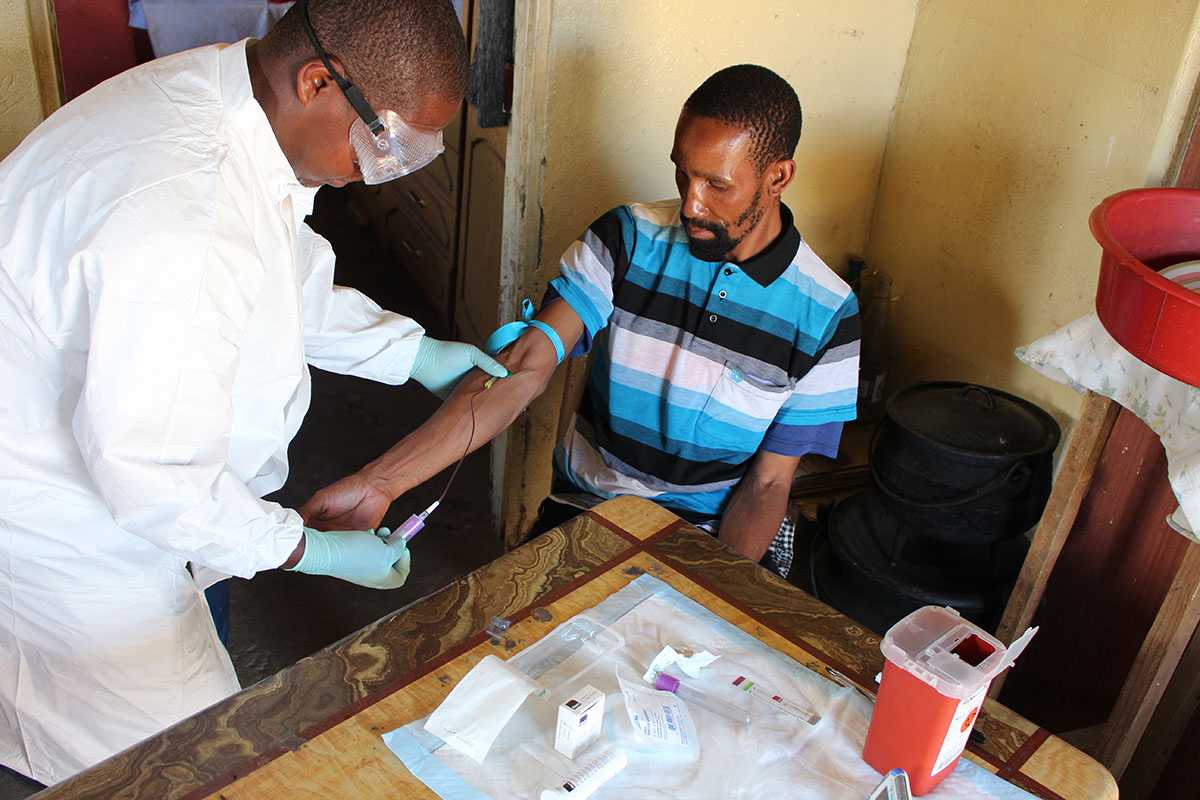
More Impact Stories
Story One
Pivoting to Protect Vulnerable Populations
Story Two
Training Frontline Health Care Workers
As the COVID-19 pandemic arrived in Sierra Leone, ICAP's experience in health care worker training, mentoring and supportive supervision proved to be a critical asset.
Story Three
Researching Biomedical Responses to COVID-19
Recognizing the urgency of developing prevention and treatment responses to COVID-19.
Story Four
Saving Lives with Music
Story Five
Sustaining Methadone Treatment During Lockdown
Story Six
Harnessing Tech to Advance HIV Recency Testing
In the early days of the COVID pandemic, Zimbabwe had low infection rates, and people knew very little about the rapid global spread of the virus.
Story Seven
Surveying the HIV Epidemic Undaunted
Since 2014, the Population-based HIV Impact Assessment (PHIA) Project has been guiding the global HIV response by conducting national representative surveys that chart the state of the HIV epidemic across 15 countries.
Story Eight
Responding to Malaria in Remote Regions
For people who suffer from stigma and fear, including sex workers...
Story Nine
Confronting the Threat of Antimicrobial Resistance
While the rapid spread of COVID-19 continues to dominate headlines around the world, another health crisis looms large.
Story Ten
Connecting Key Populations to Care
For people who suffer from stigma and fear, including sex workers.

